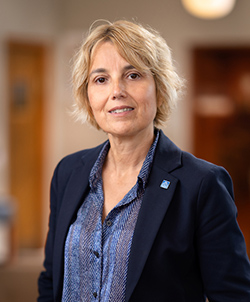As we prepare to open nominations for the 2025 Borelius Medal, it is timely to pause and reflect on the life and legacy of the man whose name the medal proudly bears – Professor Gudmund Borelius (1889–1985).
Professor Borelius was a physicist whose influence at KTH and within Swedish science remains deeply felt. After completing his doctorate at Lund University in 1915, he was appointed professor of physics at KTH in 1922 – a position he held until 1955.
During this time, he not only led important research in solid-state physics and the properties of metals, but also shaped the very foundations of how we educate future physicists and engineers in Sweden.
One of his most enduring contributions was the establishment of the civilingenjör program in Engineering Physics (Teknisk Fysik) in 1932 – a bold and visionary initiative that brought a deeper theoretical grounding to engineering education.
This program has since become a flagship of Swedish technical education, producing generations of graduates who combine scientific rigor with engineering excellence.
In the early decades of Teknisk Fysik, the educational path was relatively streamlined. Students followed a shared, rigorous curriculum rooted in mathematics, physics, and fundamental engineering principles.
Specialization came late, if at all. Today, by contrast, a student in Teknisk Fysik can choose among more than a dozen master’s programs, spanning areas as diverse as quantum technology, machine learning, medical physics, financial mathematics, and more.
This diversity reflects a remarkable success story: the foundational training is so robust that it opens doors to many advanced fields.
Yet it also invites reflection. What do we gain from this breadth? What might we lose? How do we maintain a shared identity and depth of knowledge when the paths forward have multiplied so significantly?
Professor Borelius understood that depth and breadth are not opposites, but partners. He believed in the power of foundational knowledge – not as an end in itself, but as a platform for innovation, flexibility, and lifelong learning. As the landscape of engineering and physics continues to evolve, his legacy offers both inspiration and a timely reminder: strong foundations are not constraints, but enablers.
The Borelius Medal commemorates this legacy and recognizes those who, in their own way, have made outstanding contributions to the development and success of Engineering Sciences at KTH.


No comments yet. Be the first to comment!